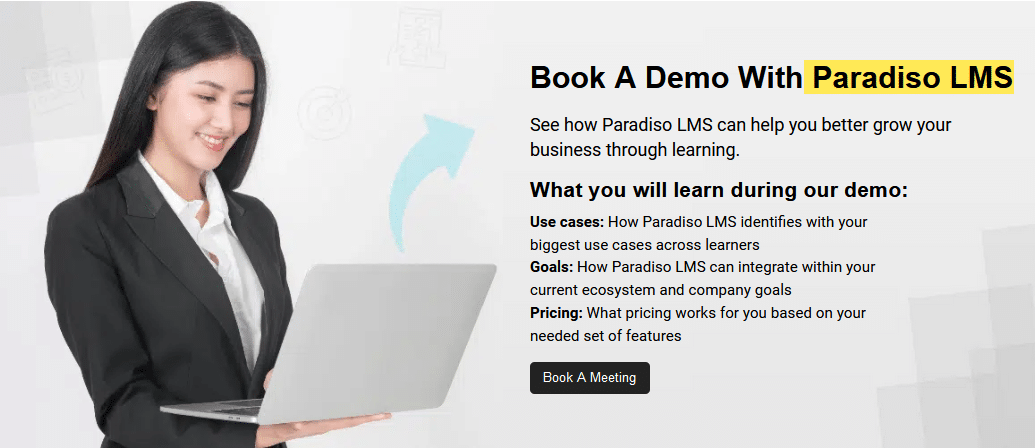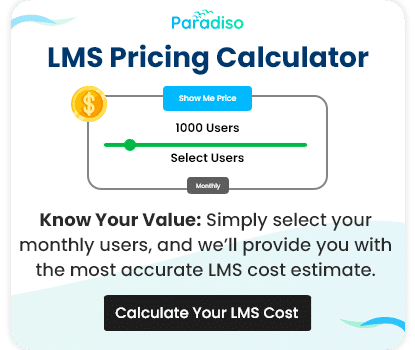Mumbai, a bustling education and technology hub, is home to a growing number of Learning Management System (LMS) providers, offering innovative solutions to meet the diverse needs of educational institutions and corporate training programs.

Learning Management System Providers in Mumbai
These providers are at the forefront of delivering cutting-edge platforms that enable seamless course creation, management, and delivery, tailored to enhance learning experiences in traditional and remote environments.
With a focus on customization, scalability, and user-friendly interfaces, LMS providers in Mumbai are playing a crucial role in transforming the landscape of education and professional development in the city and beyond.
How does the Learning Management System Software Work?
A Learning Management System (LMS) works with role-based access by assigning specific permissions and functionalities to different user roles, such as administrators, instructors, and learners.
Administrators manage the system, control settings, and oversee user enrollment.
Instructors create and manage courses, monitor student progress, and provide feedback.
Learners access the courses, complete assignments, and track their own progress. Each role has access only to the features and data relevant to their responsibilities, ensuring a secure and organized learning environment.
Types of Learning Management Systems
Organizations must be fully informed of the instrument requirements they intend to use. It only makes sense that you look at the three kinds of learning management systems that are listed below:
Self-Hosted Learning Management System
A self-hosted LMS is installed and managed on an organization’s own servers. This type offers complete control over customization, data security, and system integration.
Organizations can tailor the LMS to their specific needs, but it requires significant IT resources for maintenance, updates, and troubleshooting. It’s ideal for institutions prioritizing data control and having the technical capacity to manage the system in-house.
Cloud-Based Learning Management System
A cloud-based LMS is hosted on the provider’s servers and accessed via the Internet. It’s easy to set up, requires no IT infrastructure, and is automatically updated by the provider.
This type of LMS is scalable, accessible from anywhere, and often comes with subscription-based pricing. It’s popular among organizations looking for flexibility, ease of use, and minimal maintenance.
Mobile Application Learning Management System
A mobile application LMS is designed specifically for learning on mobile devices like smartphones and tablets. It allows learners to access courses, complete assignments, and track progress on the go, providing a convenient and flexible learning experience.
Mobile LMS apps are essential for organizations that need to support remote or on-the-move learners, ensuring education is accessible anytime, anywhere.
Who Uses LMS Software?
LMS software is used by a wide range of users, including educational institutions, businesses, and training organizations.
Schools, colleges, and universities use LMS to deliver online courses and manage student learning.
Businesses utilize LMS for employee training, onboarding, and professional development.
Nonprofits and government agencies also use LMS to educate staff, volunteers, and the public.
Essentially, any organization that needs to deliver, track, and manage learning or training programs can benefit from using an LMS.
Features Should have to look in LMS
When choosing a Learning Management System (LMS), consider these key features:
- Course Management: Tools for creating, organizing, and delivering courses, including content upload, multimedia support, and activity modules.
- User Management: Role-based access control, user enrollment options, and the ability to group learners for targeted instruction.
- Assessment and Grading: Quizzes, assignments, automated grading, and a gradebook to track student performance and progress.
- Customization: Ability to customize the platform’s look, feel, and functionality to match your organization’s branding and specific needs.
- Mobile Accessibility: A mobile-friendly interface or dedicated app to allow learners to access content on the go.
- Integration Capabilities: Compatibility with other systems such as CRM, HR software, and third-party tools, as well as support for standards like SCORM and xAPI.
- Reporting and Analytics: Detailed reports and analytics to monitor learner engagement, course completion rates, and overall performance.
- Support and Scalability: Reliable customer support and the ability to scale the LMS as your organization grows.
Why Paradiso LMS is the Best LMS provider in Mumbai
Paradiso LMS stands out as the best LMS provider in Mumbai due to its comprehensive features, user-friendly interface, and unmatched customization options. Catering to the diverse needs of educational institutions and businesses alike, Paradiso LMS offers a robust platform that includes adaptive learning, gamification, and seamless integration with existing systems.
Its cloud-based solution ensures scalability and accessibility, while its dedicated customer support and local presence in Mumbai make it a trusted partner for organizations seeking top-tier learning management solutions. With a focus on innovation and user experience, Paradiso LMS has earned its reputation as the best LMS in Mumbai, delivering unparalleled value and performance.










